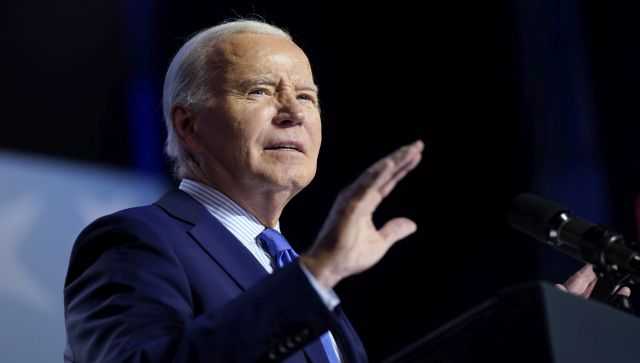Amid the 2024 election year in America, a bizarre and alarming incident unfolded in the state of New Hampshire that shed light on the growing threat of deepfake technology in the political landscape. President Joe Biden, or so it seemed, was urging Democratic voters not to participate in the upcoming primary election. However, it was soon revealed that this plea was not genuine. It was a deepfake call, a technological manipulation that mimicked the voice of the president.
Days before the Democratic primary in New Hampshire, thousands of voters received a peculiar robo-call purportedly from President Biden, advising them to save their votes for the November presidential election. The call, however, was a deepfake—a fabricated recording that convincingly imitated the president’s voice. “It’s a robocall for upcoming election 2024, obviously. So I just want to be careful in that comment. But that call was indeed a fake and not recorded by the president. I can confirm that. And so, I just want to be really careful, since it is a primary election. It is a campaign. Don’t want to speak too much about that. And look, more broadly as we talk about deepfakes, the president has been clear that there are risks associated with deepfakes. Fake images and misinformation can be exacerbated by emerging technologies,” said White House spokesperson Karine Jean-Pierre. Investigation and denials While the Republican party denied any involvement in the incident, the Trump campaign disassociated itself from the deepfake calls. The mysterious origin of these calls, reaching nearly 20,000 people, has prompted an investigation by the state of New Hampshire, leaving both experts and voters on edge. As the world enters a year marked by elections in nearly 70 countries, the specter of deepfakes looms large. These manipulated audio and video creations can replicate a person’s voice and appearance, presenting a significant challenge for the integrity of electoral processes worldwide. The potential impact of deepfakes on influencing voters and election results is a growing concern. A survey conducted in the United States revealed that 81 per cent of voters felt deepfakes had influenced their decisions, with 36 per cent claiming to have changed their votes based on manipulated content. The danger extends beyond the US, as online deepfake videos surged by 550% in 2023, with over 500,000 instances recorded on social media platforms. Instances of deepfake manipulation have been reported worldwide. In Bangladesh, ahead of polls, deepfakes targeted both the ruling party and the opposition. In Taiwan, pro-independence candidates faced a barrage of deepfakes, believed to originate from China. Even in Pakistan, political parties are embracing deepfakes, exemplified by Imran Khan’s use of an AI clone to address a rally from jail. Challenges and solutions India stands as the sixth most vulnerable country to deepfake threats, prompting concerns from Prime Minister Narendra Modi. In response to the escalating issue, companies and countries are taking measures to address the challenge. OpenAI has restricted the political use of its products, while social media giants like Facebook and Instagram are implementing flags for political deepfakes in advertising. Despite some safeguards, the accountability gap remains a significant concern. Politicians can leverage deepfake technology to make outrageous claims, attributing them to AI-generated content and evading responsibility. Governments are urged to introduce and enforce regulations, implement deepfake identifiers and consider limitations or bans on the use of AI in political campaigns. As voters, vigilance is paramount in the face of the deepfake threat. Relying on traditional sources of news, verifying information, and refraining from sharing unverified content are crucial actions in safeguarding the democratic process. In the year 2024, it is not just political power that hangs in the balance—it is the very fabric of reality itself. Views expressed in the above piece are personal and solely that of the author. They do not necessarily reflect Firstpost’s views. Read all the Latest News , Trending News , Cricket News , Bollywood News , India News and Entertainment News here. Follow us on Facebook, Twitter and Instagram.


)

)
)
)
)
)
)
)
)



